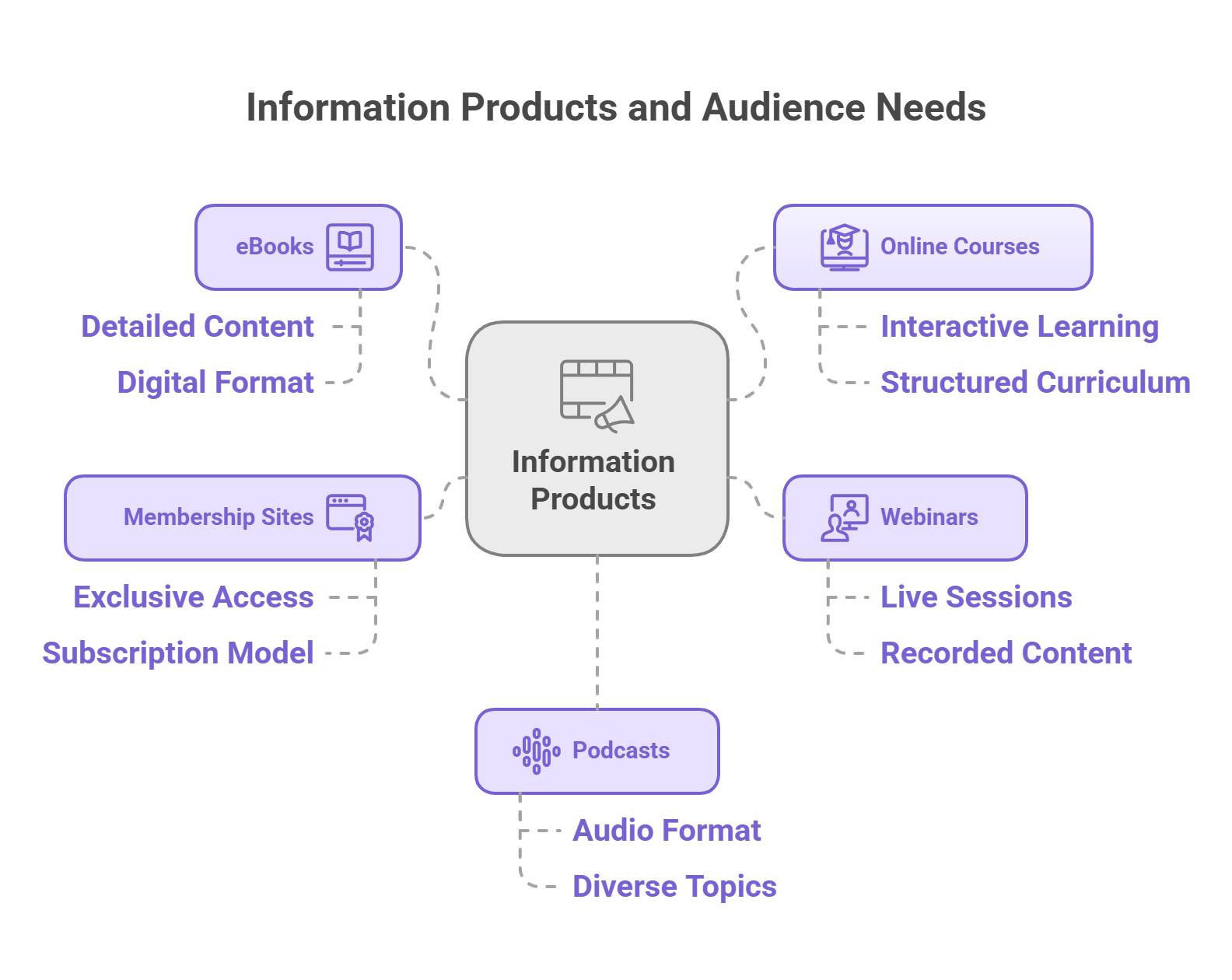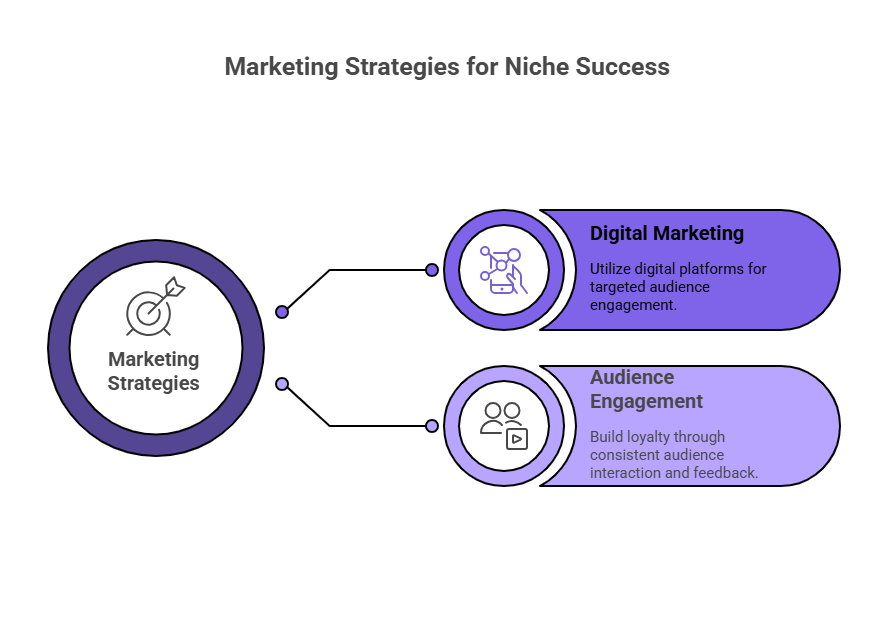Contents
Most aspiring marketers struggle to pinpoint the right niche that aligns with their passions and expertise. Understanding how to identify your unique space in the market can lead to lucrative information marketing opportunities. In this guide, you will learn effective strategies to analyze your interests, assess market demand, and discover profitable niches that resonate with your target audience. By focusing on what you love and what sells, you can set yourself up for success in the world of information marketing.
Key Takeaways:
- Conduct thorough market research to identify gaps in the information landscape where demand exceeds supply, allowing you to pinpoint profitable niches.
- Evaluate your own skills and passions to ensure alignment with your chosen niche, as this will enhance your ability to create valuable content and maintain motivation.
- Test your niche idea with a target audience through surveys or small-scale projects to validate market interest before fully committing to larger information marketing initiatives.
Understanding Information Marketing
To succeed in the digital landscape, understanding information marketing is imperative. This niche focuses on packaging and selling knowledge, helping audiences solve problems or enhance their skills through various content forms. By grasping this concept, you can effectively reach your target market and capitalize on emerging opportunities.
Definition and Importance
With information marketing, you create and distribute valuable content that educates and informs your audience. Its importance lies in the ability to monetize your expertise and build trust with potential customers. Establishing yourself as a thought leader can lead to increased sales and loyal followers.
Types of Information Products
Across the digital marketing spectrum, there are various types of information products you can develop, including:
- eBooks
- Online courses
- Webinars
- Membership sites
- Podcasts
After selecting your preferred formats, consider how each type serves your audience’s needs.
| Type | Description |
|---|---|
| eBooks | Digital books that provide in-depth information |
| Online Courses | Structured learning experiences delivered online |
| Webinars | Live or recorded seminars on specific topics |
| Membership Sites | Exclusive content access for paying members |
| Podcasts | Audio programs discussing various subjects |

Information products vary in format and purpose, catering to different audience preferences. Each type can serve a distinct purpose, helping you meet the diverse needs of your market. They not only enhance your credibility but also create multiple revenue streams.
- Identify your target audience
- Choose engaging formats
- Create relevant content
- Market your products effectively
- Continuously improve based on feedback
After implementing these strategies, you can maximize your information marketing success.
Researching Your Target Market
You must examine into your target market to uncover valuable insights that will guide your information marketing efforts. Conduct surveys, engage in forums, and utilize social media to connect with your potential audience. Understanding their behaviors, preferences, and pain points will empower you to tailor your offerings and maximize your impact. This foundational research will not only help you resonate with your audience but also identify lucrative opportunities in the market.
Identifying Audience Needs
An effective way to tailor your marketing strategy is to identify your audience’s needs and desires. Pay close attention to the questions they ask and the topics they engage with most. Utilize tools like Google Trends and social media analytics to gauge trending subjects within your niche, ensuring your content aligns with the interests of your target demographic.
Analyzing Competitors
For insight into your market landscape, analyze your competitors thoroughly. Look at their products, marketing strategies, and customer feedback to identify both their strengths and weaknesses. This will not only give you ideas on what to emulate but also highlight gaps in the market that you can exploit to your advantage.
Your competitors can provide a goldmine of information regarding aspects such as pricing, content style, and marketing channels. Investigate their customer reviews to pinpoint dissatisfaction that you can address with your offerings. By understanding the competitive landscape, you can position your products or services more effectively and carve out a distinctive niche in your market.
Evaluating Niche Profitability
Keep your focus sharp on the profitability of your chosen niche by conducting thorough research. Use tools and resources to assess market trends and consumer behaviors. For more guidance, check out this Find Out If a Niche Is Profitable: A Guide to Market Research to ensure your efforts lead to fruitful opportunities.
Market Demand Analysis
Evaluating market demand is important for understanding consumer interests and ensuring your niche has a viable audience. Utilize platforms like Google Trends and social media insights to gauge interest levels and identify potential gaps in the market. By staying informed about trends, you can tailor your content to meet the needs of your target audience effectively.
Potential Revenue Streams
Potential revenue streams in your niche can significantly impact your overall profitability. Explore various monetization strategies such as affiliate marketing, online courses, or selling digital products. Assess which options are best suited for your audience and skillset as you design a revenue-generating plan.
It is vital to consider diversifying your revenue streams within your niche. By offering a combination of products or services, you can maximize your earning potential. For instance, if you create and sell eBooks, think about launching a related online course or membership site to supplement your income. The more avenues you explore, the more sustainable your information marketing business will become.
Crafting Your Unique Selling Proposition
After you have identified your niche, it’s time to craft your Unique Selling Proposition (USP). This is a powerful statement that articulates what makes your offer distinct from competitors. It should resonate with your target audience while emphasizing the unique benefits that only your product or service can provide. Your USP will serve as the backbone of your marketing strategy and help convince potential customers why they should choose you over others in the market.
Differentiating Your Offering
Unique value comes from clearly differentiating your offering. Assess what aspects of your products or services stand out in the marketplace—be it quality, price, or unique features. Highlighting these distinctions helps you connect with your audience and meet their specific needs, ensuring your offering remains memorable in a crowded marketplace.
Building Brand Authority
Between establishing a unique position and fostering trust, building brand authority is necessary. Authority is what convinces potential customers that your expertise is worth their time and money. By consistently producing valuable content, sharing insights relevant to your industry, and engaging with your audience, you solidify your status as a thought leader.
Brand authority is built over time through consistent engagement and valuable contributions to your niche. By sharing expert insights, hosting webinars, or creating informative resources, you establish your credibility. This trust translates into customer loyalty and encourages your audience to turn to you for solutions. Engaging with your audience through various platforms also builds a community around your brand, further reinforcing your authority in the market.
Developing and Testing Your Product
Despite having a great idea, developing a successful information product requires thorough testing and refinement. You need to create a product that not only meets the needs of your audience but also stands out in the crowded market. By systematically working through the development process and seeking valuable insights from potential customers, you can ensure that your final offering is both effective and appealing.
Creating Minimum Viable Products
Between your initial idea and a refined finished product lies the concept of a Minimum Viable Product (MVP). An MVP allows you to launch quickly with a simplified version of your offering, enabling you to test key features and receive crucial market feedback without allocating excessive time or resources. This iterative process helps you pivot and improve based on real user interactions.
Gathering Feedback for Improvement
For any product to succeed, gathering feedback is crucial. It allows you to identify strengths and weaknesses, ensuring that you can make informed adjustments that resonate with your audience’s needs. Engaging with your customers after an MVP launch will provide insights that are invaluable for refining your product and better serving your target market.
Consequently, by actively seeking out and implementing customer feedback, you can position your information product for success. Use surveys, interviews, and social media interactions to gain insights into what your audience truly values. This feedback loop not only enhances your product but also fosters relationships with your customers, making them feel involved in the development process and increasing their loyalty to your brand.
Marketing Strategies for Niche Success
Once again, understanding effective marketing strategies is vital for thriving in your niche. By utilizing targeted marketing methods, you can reach your ideal audience more efficiently. Consider exploring resources like How To Find Your Niche in 5 Steps (Plus Tips and Benefits) to enhance your marketing approach and discover innovative tactics.
Leveraging Digital Marketing Techniques
About 80% of consumers research online before making a purchase, making digital marketing crucial for your niche success. Utilize social media platforms, SEO, and email marketing to effectively target and engage with your audience. Consistency in your messaging and branding will also establish your authority within your niche, ultimately leading to increased visibility and sales.
Engaging with Your Audience
With a focus on engaging with your audience, you can build a loyal customer base that values your insights and offerings. Interaction is key; respond to comments and questions, and share content that resonates with your audience’s interests. Tailoring your communication style to meet their preferences can significantly boost engagement and create a sense of community around your niche.
Audience engagement is a continuous process that requires attention and effort. Incorporate surveys, polls, and feedback forms to involve your audience in shaping your content and services. By developing a two-way communication channel, you not only enhance user experience but also foster trust and loyalty, leading to repeat business and referrals in your niche market.

Summing up
On the whole, identifying your niche is pivotal in uncovering profitable information marketing opportunities. By understanding your passions, strengths, and the specific audience you aim to serve, you can carve out a unique space in the market. This strategic focus not only enhances your credibility but also increases your potential for success. As you refine your niche, stay attuned to emerging trends and consumer needs to ensure your offerings remain relevant and valuable.








